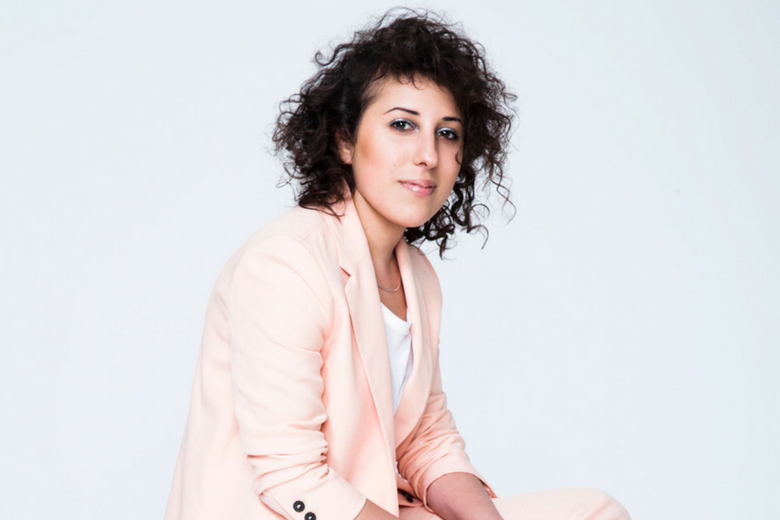Rachel Tipograph’s marketing career started at a young age when she sold all her Bat Mitzvah gifts on eBay. Today Tipograph is the founder and CEO of MikMak, a social video commerce platform that lets consumers shop directly from social media. The inspiration for MikMak came from her job as one of the youngest executives at Gap — she was the global director of digital and social media at 24 and was named to the 2014 Forbes 30 Under 30 Marketing and Advertising list for her work.
“At Gap, I realized [that] in many ways e-commerce was broken because the two key drivers — promotional emails and retargeted advertising — are the most annoying tactics that erode your brand,” says Tipograph, “I had this burning question, ‘How do you drive sales online and not annoy people?'” As she ran video commerce experiments, she realized there was a way to make the experience more profitable for brands and retailers so she took a 100-day trip around the world before starting MikMak in 2014.

What has been the biggest challenge and, on the flip side, the biggest reward of starting MikMak?
The biggest challenge and the biggest reward, is the same for me. It was when I decided to pivot the business from a consumer app to an enterprise platform. When I started, folks called my original iOS app “QVC for Snapchat.” A year into that business model, I could see where the market was heading and that being your “own wall garden video store” wouldn’t be a strong enough value proposition in the future.
Every brand and retailer will be connecting with customers this way, and I saw a more scalable opportunity to allow brands and retailers to license MikMak’s software, MikMak Attach, and use our creative services, MikMak Studios, via an enterprise model.
What advice do you have for other women who hope to start their own businesses?
Be honest with yourself about what you’re the freaking best and worst at. Whatever you’re the best at, ensure that you have reverse engineered your business to match your strengths. Whatever you’re the worst at, go find a cofounder who is the best at those items.
What is a workday like? Please walk me through a day!
If I’m not on the road for MikMak, I typically wake up around 6 a.m. and either do a boxing, cycling or bootcamp workout class. Sometimes I even bring clients and my team to workout with me.
I try to stack my Manhattan meetings in the morning since our office is in Brooklyn. If I’m not at a client office and I’m in Manhattan, you’ll find me at SoHo House meeting with folks. Then I’m off to our Brooklyn office for internal team meetings. I’m a huge proponent of doing meetings in-real-life. It is probably because I’m an extrovert and feed off the energy of my team.
I aim to leave the office by 7 p.m. so I can go do dinners or drinks with clients, investors, fellow founders, friends or family. I spend about 50% of my time traveling for MikMak, speaking engagements and meetings with our clients who are on the West Coast, in the Midwest and in Europe.
What are your responsibilities as founder and CEO of MikMak?
Seeing the future and making it happen. If I’m not innovating, hustling, communicating our vision and establishing goals, then I can’t expect my team to execute to their greatest ability. In terms of tactical responsibilities, sales, marketing, product and creative services report to me. Customer success, human resources, legal and finance report to my senior vice president of operations.
What are the most important characteristics someone needs to have to be successful in your role?
Stamina, charisma, focus, vision and resilience.
What is a characteristic you look for when you’re hiring a new team member?
Emotional intelligence. Hard skills can be taught and institutional knowledge and expertise can be formed over time. A candidate either has emotional intelligence or they do not. If you have it, you have a leg up almost immediately.
What’s the biggest lesson you learned at work and how did you learn it?
When you’re working at a company, investing in your external network is as important as investing in your internal company network. You need to publicize the work you’re doing. Build relationships with folks across your industry. This is how you advance your career. I learned this by watching from example, Bonin Bough, Linda Boff, Gary Vaynerchuk, Kristin Lemkau, Steven Wolfe Pereira [and] Rachel Weiss, they’re masterful at this.
What is one thing that you wish you had known when you were starting out your career?
How lonely being a sole founder is.
What is the best advice you’ve ever received?
When a mentor asked me, ‘What risks can you afford to take?’ It’s how I frame most of my decision making. I identify what’s the worst outcome that could happen. If it doesn’t seem that bad or unlikely, I take the risk. Risk-taking is a luxury and if you’re in a position to do it, seize it.
What is your business advice for other young professional women?
Develop your voice. If you look at any great female business leader, they’re an incredible orator. I can’t stress this enough, this one skill will advance your career more than any other. The easiest way to start doing this is to enroll in an improv class.
Photo courtesy of Rachel Tipograph, MikMak.































